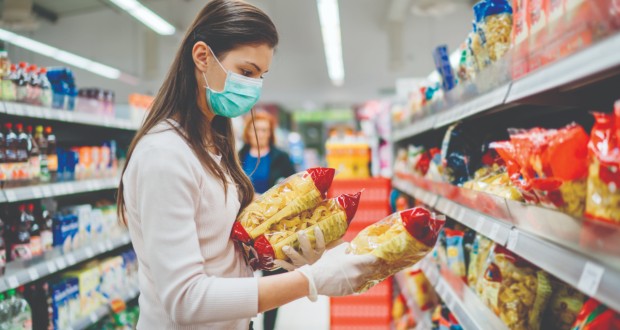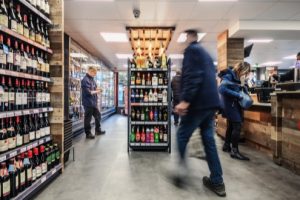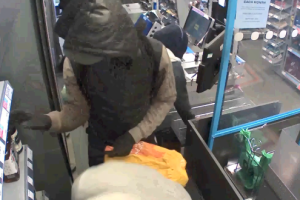“Bloody hell, I hope not,” is the first reaction of Paul Cheema, who runs Nisa Malcolm’s Stores in Coventry. His fervent wish is that fears about a second wave are overdone and that we might get through this winter without a serious nationwide spike in the virus. But Cheema knows, as most of us do, that a second wave is at least possible, if not probable. The important things will be how bad it is and whether retailers can cope with it better, or at least as well, second time around.
Local lockdowns
Opinion is divided as to how much you can prepare for any second wave. Cheema says: “I don’t really think you can prepare. All we can do is to be careful with how we let people into the store and how we operate.”
Chas Chahal, who runs Costcutter and Simply Fresh stores in Worcestershire, is marginally more upbeat, largely on the basis that “we should be more experienced in knowing what products will be in demand” and that any lockdowns seem more likely to be localised. But like Cheema, Chahal is keeping his fingers crossed that any second wave is more manageable than the first, and that the measures retailers took in haste in March and April will be more familiar and easily implemented this winter.
The symbol groups are certainly all standing by to help their members. Spar is among those confident they can cope if a second wave strikes. A spokesperson says: “The health and safety of store teams and customers are Spar’s number one priority and Spar will continue to react quickly to all government and industry guidance by supporting stores and shoppers with extensive communication, advice, reassurance and PPE supply.” She adds: “Dedicated wholesale warehouse support teams closely monitor sales trends and stock levels to ensure customers’ needs are being fulfilled.”
Rapid response
James Lowman, chief executive at the Association of Convenience Stores (ACS), knows well that retailers are edgy about a second wave. That said, he has great faith in the ability of the sector to deal with whatever is thrown at it, not least because of the way it handled coronavirus first time around. Lowman says: “We can’t say whether or not there will be a second wave. But we can say our sector has shown it can respond very quickly, and we should celebrate that. Contingency planning is a bit of a process and they have had plenty of experience at it.”
There are several ways in which retailers can plan ahead for any second wave, one of the most obvious of which is keeping stock levels high, so any supply chain problems cause less disruption. But as Lowman points out, keeping extra stock is only possible if you have extra space to store it in; many shops don’t. In its 2019 Local Shop Report, the ACS asked members how much storage space they had outside the shop floor in which to keep stock. Nearly a quarter (23%) said they had no space at all, while 50% said they had up to 500sq ft of additional space. A lucky 27% had more than 500sq ft in which to stockpile. This means just over a quarter of UK convenience stores could indulge in some serious warehousing if they wished, with half able to increase stock in a limited fashion and just under a quarter unable to increase stock even if they wanted to.
Back-up stocks
Besides the space issue, retailers also have had to change their mindset about how much stock to hold. For years they have been advised – rightly enough – that just-in-time deliveries are sensible, and that they should minimise capital invested in things just sitting in the storeroom. In 2020, that advice has changed. It now comes with a warning that you might need to reverse the old approach in an emergency. Keeping substantial back-up stocks has come back into fashion.
Naturally enough, suppliers can sometimes help retailers out with ensuring supply chains are stable even under pressure. Wholesaler Parfetts is among those expanding their stock-holding levels with extra storage space. Guy Swindell, Parfetts retail director, says: “We already have two depots, in Manchester and Halifax, that are in areas of local lockdown and it’s clear that the government is concerned about a possible second wave in autumn.Rigorous planning has been completed to ensure we have adequate stocks of the essentials from flour to toilet rolls.”
A second lesson retailers learnt from Covid’s first wave is that they should think about alternative sources of supply. Sometimes this can mean turning to more local suppliers, where long supply chains can be less of an issue, which has the additional benefit that offering local products can be a big selling point in itself. Even more imaginatively, says Lowman, many retailers turned to food service operators in March and April.
Restaurants and hotels found themselves with stock but no customers, whereas convenience stores had customers but not enough stock. The obvious solution was arranged, with retailers buying the stock food service no longer needed, even if the nature of what was on the shelves in convenience stores might have altered a little.
Social distancing
Retailers also found in March and April they had to learn quickly how to manage customers queueing outside so social distancing could be managed inside the shop. If anything, this will be worse in the winter, when standing outside in the cold and the rain will be much less comfortable than doing so in the spring and summer. This is why some retailers, such as Anne Louise Morgans of Spar Johnstown near Carmarthen in Dyfed, are considering putting up shelters outside their shop to make it slightly more bearable for customers in bad weather. Lowman says one possibility is that the cost of shelters could be shared by a group of retailers in the same place, so that one shelter could serve two or three shops.
Deliveries have been another retailer reaction to lockdown that has shown how quickly independents can adapt. Not only has this kept business more than ticking over in a very challenging period of trading, but it has resulted in an enormous amount of customer goodwill. For some retailers, deliveries have also become a measure of how they will react to any future Covid crisis, or anything comparable. This is why Morgans, as well as her planned bus-style shelter, says she is expecting her delivery service to be resumed at some point this winter.
Weather the storm
None of this is a surprise to ACS chief executive Lowman, who is optimistic that independent retailers could not only weather another crisis, but thrive. He says: “The sector has even got better at communicating with their customers. Whether it is with posters, or briefing staff to explain things to anybody coming into the shop, or on social media, retailers have shown themselves to be extremely adaptable.”
Despite all this praise for retailers, some research suggests not all of them are getting battle-ready for any major recurrence of Covid. A survey of 500 retailers from all sectors by Brightpearl, a digital operations specialist, found more than half have made no preparations at all. But it should be said that most independent convenience stores we spoke to do seem to be taking all the measures they can.
The truth is there is a limit to what each business sector can do to protect itself against a second wave. Much will depend on what happens nationally and internationally to contain the virus. But that doesn’t mean convenience stores can’t do something. And the evidence seems to be that independent retailers are certainly doing their best to help themselves and their customers.
By David Harris
 Talking Retail Grocery and product news for independent retailers
Talking Retail Grocery and product news for independent retailers






